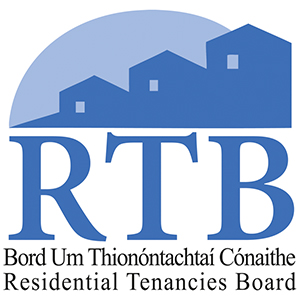
Housing and homelessness committee’s priorities outlined
1st June 2016
Meeting the demand for social housing
1st June 2016Residential Tenancies Board role expanded

Director of the Residential Tenancies Board Rosalind Carroll outlines changes in the rented sector and discusses the progress the RTB has made to date and her priorities for the future.
 The Residential Tenancies Board (RTB), formerly the Private Residential Tenancies Board (PRTB), was established in 2004. Its remit is to support the rental housing market and to resolve, cheaply and speedily, disputes between landlords and tenants. We currently have over 320,000 tenancies registered with us representing 172,000 landlords and over 705,000 occupants.
The Residential Tenancies Board (RTB), formerly the Private Residential Tenancies Board (PRTB), was established in 2004. Its remit is to support the rental housing market and to resolve, cheaply and speedily, disputes between landlords and tenants. We currently have over 320,000 tenancies registered with us representing 172,000 landlords and over 705,000 occupants.
Our remit has also recently been extended to the Approved Housing Bodies sector, and hence our name has now been changed to reflect this broader remit within the rental sector. Prior to this we were responsible for the private rental sector only, but our new responsibility for the Approved Housing Bodies, often referred to as housing associations, means our remit has now extended to the social rented housing sector. This means some 30,000 tenants and over 500 landlords of these properties will now enjoy certain provisions of the Residential Tenancies Acts, including access to the disputes resolution services we operate. This is an important development as it breaks down the traditional distinction in the rental sector between social and private rented housing and moves us closer to rental models elsewhere, where such distinctions can rarely be identified.
The rental sector has become an increasingly important tenure in Ireland, and has grown considerably over the last number of years. The last census showed that one in five were renting in the private sector and, if you include the social rented sector, this figure increases to just under one in three. The growth in the sector can partly be explained by the downturn in the economy, decreased mobility with less first time buyers, and the lack of new supply. However, it can also be partly explained by longer term societal changes, inward migration and population growth. Therefore, the rental sector now makes up a significant component of housing tenures in Ireland and this is likely to be a continued feature of our housing market into the future. The impact of this for the RTB is that we have a much more critical role and much more demand for our services.
Last year, we had over 108,000 calls to the RTB and some 55,000 email queries. The number of cases referred to our dispute service also increased by 20 per cent to 4,023 in 2015, which equates to over 1 per cent of registered tenancies. The dispute service we provide is quasi-judicial, and therefore we replace the courts in affording protection to both tenants and landlords. There are two options for referring disputes to the RTB; one, mediation (if chosen by both parties) or two, adjudication. Our mediation service is now free and can be used over the phone, with a trained mediator working separately with each party to reach a mutually acceptable resolution. This confidential service has had a 92 per cent success rate and, because parties have come to their own agreement, they tend to comply with the agreement. Adjudication is where the parties submit their application and evidence to back up their claim. They attend an adjudication hearing and present their case and evidence. Evidence can include tenancy agreements, photographs, inventories carried out, invoices or receipts for damages to the property, etc. An independent adjudicator will make a decision based on the law, the facts and the evidential basis of the claim. The fee for this service is €15 for online applications and €25 for paper applications. Either party in an adjudication process has a right to appeal their case to a tribunal hearing and, in the case of mediation, if no resolution is found, these can be referred directly to a tribunal hearing.
We have improved our disputes resolution times significantly, with on average adjudications taking 10.5 weeks and telephone mediation taking 4-9 weeks. My ambition is to continue to improve our services to tenants and landlords in every possible way, and also to underpin this with improvements to our IT and customer services in order to ensure the best quality, and most user friendly service possible.
The overall aim or vision of the RTB is “a well-functioning rental housing sector in Ireland that is fair, accessible and beneficial for all”. Not for a very long time has such a vision statement been so relevant and challenging as we seek, as a society, to grapple with the growing housing accommodation crisis that has rapidly unfolded, following the slump in housing construction during the 2008-2014 economic recession.
Until recently, it was very much a renter’s market, with a glut of available accommodation, even in our larger urban areas. This picture has now changed dramatically, and in all our major cities and towns there is now a growing shortage of housing accommodation for rent. The consequence of this has been a surge in rents that is hindering the ability of many families and individuals to obtain suitable accommodation, and is also causing affordability issues, which can be seen from a dramatic rise in the number of disputes involving rent arrears that are referred to us. Whilst supply is the main issue to be addressed, a number of important changes in the law governing the relationship between tenants and their landlords were introduced under the 2015 Residential Tenancies Act, to provide more certainty to tenants.
Chief among these latest reforms has been an increase from 12 months to 24 months in the period before a landlord can seek a rent increase, and the requirement for the landlord to give 90 days’ advance notice of any increase (previously it was 28 days). Furthermore, any increase must reflect rent levels in the local area. There has also been an extension of notice periods for both landlords and tenants in respect of termination of longer term tenancies – up to 224 days must be given by landlords and 112 days for tenants. Stronger verification procedures are now also required in relation to terminating a tenancy where the landlord intends to sell or refurbish a property.
Among my priorities now, as I settle into my new role, is to increase further the level of public awareness of the RTB, and of the changes in the law and the general right and obligations of both landlords and tenants. We commissioned research in 2014 which indicated that there was a lack of awareness of the existence of the RTB and of the rights and responsibilities of landlords and tenants. Since this time we have worked hard to increase this, but with a change of name, new laws and because of the growing importance of the sector, this is something we are going to have to continue to work at.
The RTB also has a key and increasingly important role given the current pressures on the housing market, in providing data on the rental sector.
We produce a quarterly rent index in association with the Economic and Social Research Institute based on one of the most extensive rental databases in the country. This index includes an Average Rent Dataset that enables people to check the average rent being paid for five different categories of dwelling types throughout the country, in both urban and rural areas. This means people can check what is the actual rent being paid in their neighborhood, but also that we can track trends and see what is happening in the rental market.
As a regulatory body, enforcement is a critical function of the RTB. We must have the teeth to ensure that all landlords register, but also to ensure that our adjudications and determinations are adhered to. A challenge for us is having the resources to pursue through the courts as many cases as we would like to. Therefore, one of our commitments in our forthcoming strategy is to see how we can do this more efficiently. A further challenge for the RTB in the near future will be the establishment of the Deposit Protection Scheme that would be the repository of tenants’ deposit payment at the commencement of a tenancy, rather than paying it to the landlord, as at present. This will give greater confidence and certainty to tenants, and should also bring an end to the disputes that arise because of the withholding of deposits by landlords at the conclusion of a tenancy.
Looking to the longer term challenges and to the vision of the RTB for a well-functioning rental sector that is fair, accessible and beneficial to all, as a society we need to begin recognise the fact that renting will be a much more common choice for Irish households in the future. We need to accept and welcome a larger rental sector that is reflective of our modern economy and society with a more flexible and mobile workforce. We need to no longer view the rental sector as a residual sector, where people serve their time on the way to something more long-term.

For further information contact:
www.rtb.ie






